News
-
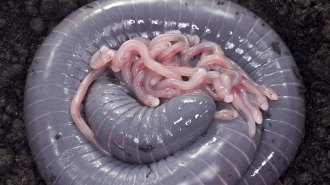 Life
LifeThis is the first egg-laying amphibian found to feed its babies ‘milk’
Similar to mammals, these ringed caecilians make a nutrient-rich milk-like fluid to feed their mewling hatchlings up to six times a day.
By Jake Buehler -
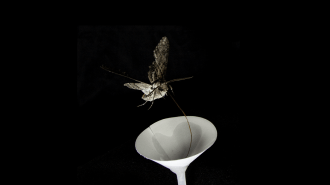 Environment
EnvironmentHow air pollution may make it harder for pollinators to find flowers
Certain air pollutants that build up at night can break down the same fragrance molecules that attract pollinators like hawk moths to primroses.
-
 Particle Physics
Particle PhysicsForests might serve as enormous neutrino detectors
Trees could act as antennas that pick up radio waves of ultra-high energy neutrinos interactions, one physicist proposes.
-
 Space
SpaceDid the James Webb telescope ‘break the universe’? Maybe not
There’s no need for strange new physics to explain anomalously bright, massive galaxies seen by JWST, Hubble data suggest.
By Adam Mann -
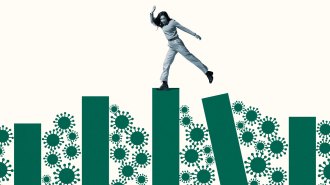 Health & Medicine
Health & MedicineThe blood holds clues to understanding long COVID
A growing cadre of labs are sketching out some of the molecular and cellular characters at play in long COVID, a once-seemingly inscrutable disease.
By Meghan Rosen -
 Health & Medicine
Health & MedicineHere’s why pain might last after persistent urinary tract infections
Experiments in mice reveal that the immune response to a UTI spurs nerve growth in the bladder and lowers the pain threshold.
-
 Planetary Science
Planetary ScienceThe desert planet in ‘Dune’ is plausible, according to science
Humans could live on the fictional planet Arrakis from Dune but (thankfully) no giant sandworms would menace them.
-
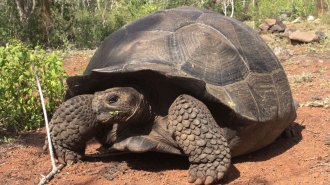 Animals
AnimalsGiant tortoise migration in the Galápagos may be stymied by invasive trees
An invasion of Spanish cedar trees on Santa Cruz Island may block the seasonal migration routes of the island's giant tortoise population.
By Jake Buehler -
 Health & Medicine
Health & MedicineMore than 1 billion people worldwide are now estimated to have obesity
A new analysis suggests that the prevalence of obesity has doubled in women, tripled in men and quadrupled in children and adolescents from 1990 to 2022.
-
 Climate
ClimateWaterlogged soils can give hurricanes new life after they arrive on land
New studies show that the long-hypothesized “brown ocean effect” is real, helping to refuel 2018’s Hurricane Florence and other storms after landfall.
-
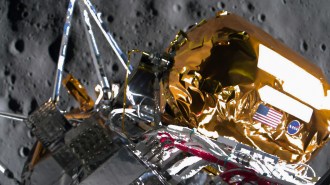 Planetary Science
Planetary ScienceOdysseus’ historic moon mission comes to an end
Odysseus downloaded data from all payloads before going to sleep February 28. The cold lunar night proved fatal to efforts to reawaken the lunar lander.
By Adam Mann -
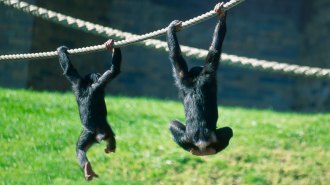 Genetics
GeneticsA genetic parasite may explain why humans and other apes lack tails
Around 25 million years ago, a stretch of DNA inserted itself into an ancestral ape’s genome, an event that might have taken our tails away.